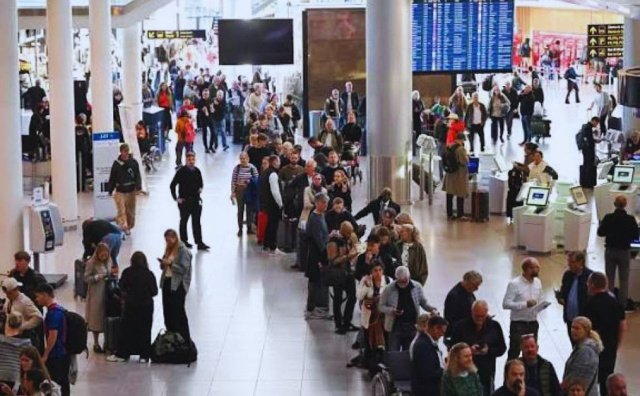The airspace over Aalborg Airport in northern Denmark was once again closed overnight on September 25-26 following reports of unidentified drones. According to Danish TV channel TV2, police received a report of a drone-like object at 11:40 p.m., prompting a suspension of all departures and arrivals for roughly an hour. Several flights were canceled, and two inbound aircraft were diverted. North Jutland Police Chief Christian Tilsted said that while a staff member spotted what appeared to be a drone, a thorough search of the area revealed nothing.
This marked the third disruption at Aalborg in less than a week. On September 24, similar drone activity led the airport to temporarily halt operations, with authorities considering the invocation of NATO’s Article 4 in response. Earlier, on September 22, Copenhagen Airport, the region’s busiest hub, was forced to suspend flights after drones were sighted, while Oslo Airport in Norway experienced a temporary closure due to similar reports.
Danish Prime Minister Mette Frederiksen described the incidents as part of a “hybrid war unfolding on Danish territory,” highlighting concerns over repeated drone incursions affecting critical infrastructure. French President Emmanuel Macron expressed full solidarity with Denmark on X (formerly Twitter) and offered France’s support in assessing and strengthening Danish airspace security.
Defense authorities in Denmark have not confirmed the origin of the drones, and Danish Defense Minister Troels Lund Poulsen noted there is no direct evidence linking the incidents to Russia. However, the flights coincided with an increase in Russian airspace violations in the region, including the entry of three Russian MiG-31 jets into Estonian airspace over the Gulf of Finland on September 19, as well as drone incursions over Poland and Romania earlier in the month. NATO has scrambled fighter jets in response to multiple Russian aircraft operating without filed flight plans over the Baltic Sea and reinforced its Eastern Sentry mission amid heightened provocations.
The Danish government characterized the repeated drone sightings as hybrid attacks, primarily aimed at intimidation, and warned that similar incidents are likely to recur. Authorities are treating the situation seriously as part of broader security concerns, linking it to cyberattacks on European airports and Russian provocations within NATO airspace.
